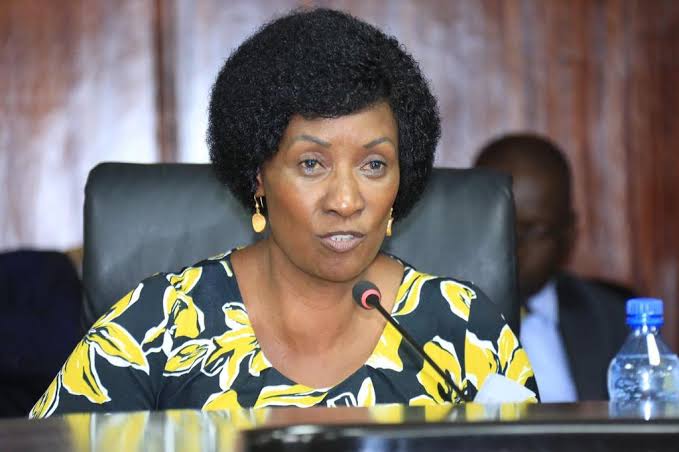For the purpose of determining the appropriate number of primary headteachers with degrees, the Teachers Service Commission (TSC) has begun a new data collection operation.
The Commission requests that the school administrators include information such as their greatest level of education (P1, DEGREE, MASTERS) in an excel file.
The TSC is currently working to put the education taskforce’s recommendations into action, which call for combining nursery, primary, and junior schools under the direction of a single principal.
The reform team wants the three educational levels to be combined into a single institution called a Comprehensive school, which will be led by a Principal who must hold a degree.
Teachers who will lead the nursery, primary, and junior schools and who will be referred to as deputy principals will help the principal.
The principal and his deputies must be qualified educators with a bachelor’s degree or higher in education.
The majority of primary school heads at the moment are P1 teachers without a degree, while several also hold diplomas.
Additionally, primary headteachers with junior secondary students enrolled in their institutions were sent in to serve as principals for a year.
TSC did not consider the headteacher’s credentials when promoting them; instead, if they had a student in Grade 7 enrolled at the school, they were given a letter of deployment to JSS.
According to the existing regulations, the interim leadership of the headteachers over the JSS expires on December 30, 2023.
TSC, however, has a whole year to put the new suggestions made by the education reform team into action.
In Kenya, there are more than 23,000 public elementary schools, the majority of which have received Ministry of Education approval to host JSS.
Senior teachers who will report to the Principal must adhere to rules that TSC and the government must develop.
Current headteachers who do not meet the requirements to lead comprehensive schools will be demoted and probably given smaller responsibilities.
They will so lose control over the finances and operations of the institution.
Due to the commission’s inability to draw candidates for the administration positions, some schools have been functioning without permanent leaders.
The accounting officer for all the sections that fall under the comprehensive school will be its head.
The make-up of the school Board of Management (BOM) is also subject to change.
Currently, a temporary subcommittee made up of members of the BoM for elementary schools oversees the JSSs.
Additionally, the PWPER (Presidential Working Party on Education Reforms) suggests limiting the number of members of the BoM to nine or ten. The present boards, it claims, are bloated.
In a different plan, the comprehensive and senior secondary school heads would serve as representatives of the Ministry of Education rather than the TSC.


